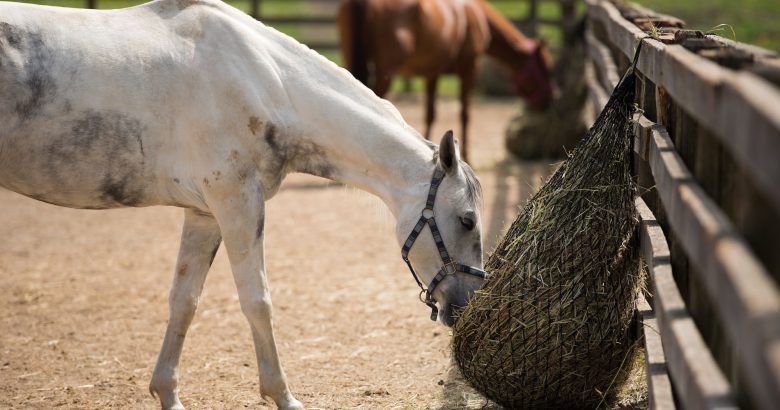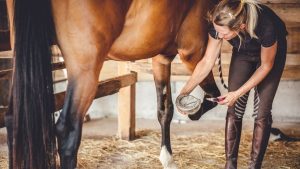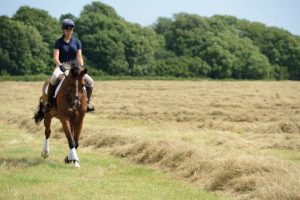The horse world has a long history and a close bond with nature. However, horses produce large amounts of waste called horse manure. As environmental issues become more important around the world, it is more important than ever to find sustainable ways to eliminate horse waste. This article discusses environmentally friendly and creative ways to dispose of horse waste so that the equestrian community does its part to protect the planet.
The Scope of the Issue:
Although horses are beautiful animals, they produce large amounts of feces every day. A horse usually produces about 50 kilos of manure per day. This makes it difficult for horse owners, grooms, and the entire equestrian community to get rid of the waste. Traditional methods of waste disposal, such as dumping in landfills or dumping outdoors, pollute the environment and produce greenhouse gases.
Natural Way of Recycling:
One of the most environmentally friendly and sustainable ways to dispose of horse waste is composting. In this natural process, organic material is broken down into nutrient-rich fertilizers. Because horse manure contains a lot of organic matter, it is an excellent material for composting. Composting not only reduces the amount of waste that needs to be thrown away but also converts waste into useful resources that improve the land.
- Basic knowledge of composting: To start an effective composting system, horse owners should set up bins or compost piles specifically for composting. It should contain a healthy mixture of horse manure, straw or bedding, and other organic waste. By turning the compost regularly, the mixture opens up and more microorganisms can do their work, speeding up the decomposition process. The end product is a nutrient-rich compost that can be used to nourish crops and pastures.
- Environmental impact: Composting significantly reduces the carbon footprint of horse manure disposal. Composting does not increase methane emissions from landfills but rather uses natural processes to convert waste into a good soil conditioner.
- Soil Enrichment: It improves the soil because compost made from horse manure is a good fertilizer. It improves soil structure, retains more moisture in the subsoil, and helps plants grow, creating a closed system that is good for both equestrian sports and the climate.
- Cost-effective: Composting is an inexpensive way to get rid of waste. It reduces the need for outside fertilizer, reduces waste disposal costs, and can even generate additional income if the excess compost is sold to area farms or gardeners.
Anaerobic Fermentation:
Anaerobic digestion is a new technology that converts organic waste such as horse manure into biogas and nutrient-rich digestate. Microorganisms break down organic material in an oxygen-free environment, producing methane-rich biogas and nutrient-rich byproducts.
- Anaerobic digestion Process: Anaerobic digesters heat horse manure and water together to create a good environment for bacterial growth. The bacteria then break down the organic waste, releasing methane gas into the air. The collected biogas can be used as green energy to heat homes or generate electricity, and the remaining digestate can be used as a powerful fertilizer.
- Producing renewable energy: Anaerobic digestion turns horse manure into usable renewable energy. This reduces our dependence on non-renewable resources and greenhouse gas emissions.
- Nutrient recovery: The digestate produced during anaerobic digestion is rich in nutrients and is a good biofertilizer. Its use made the land more fertile, encouraging sustainable agricultural practices.
- Reduce bad odors: Anaerobic digestion helps eliminate the smell of rotting horse manure, making the space better for both horses and people.
Brand New Technology:
As technology continues to develop, new and creative ways are emerging to dispose of horse waste in a way that does not harm the environment. Some advanced technology aims to turn horse waste into something useful that is even more useful to the planet.
- Preparation of biochar: Biochar is a carbon-rich substance made by heating organic waste such as horse manure in areas with little oxygen. This process, called pyrolysis, not only stores carbon but also converts it into a stable form that can help the land grow plants and retain moisture.
- Agricultural insects: Some insects, such as the eggs of the black soldier fly, like to eat organic waste, such as horse manure. Horse waste can be converted into protein-rich animal feed or sustainable biofuels through insect breeding methods.
- Thermal conversion technology: New thermal conversion technologies, such as gasification and hydrothermal liquefaction, give us more options to convert horse manure into useful things like chemicals, heat, and energy.
Conclusion
Horse owners have a responsibility to care for the planet, and proper horse waste disposal is an opportunity for the equestrian community to do good in the world. Composting, anaerobic digestion, and new technologies are all great ways to process horse manure and convert it into usable materials. Horse owners and riding schools can use these tips to make their businesses more sustainable and environmentally friendly. This shows that responsible equestrianism and care for the environment go hand in hand.
FAQs
1. Why is the long-term removal of horse manure important?
The sustainable disposal of horse waste is important for protecting the planet. It reduces greenhouse gas pollution, keeps water clean, and converts waste into useful materials.
2. What is the most environmentally friendly way to dispose of horse poop?
Composting is considered one of the best ways to protect the environment. It not only reduces waste but also converts horse manure into nutrient-rich compost that is good for the land.
3. How does anaerobic digestion eliminate horse waste?
Anaerobic digestion breaks down horse feces in the absence of air, creating biogas and nutrient-filled digestate. Biogas can be used as clean energy and biogas residues can be used as biofertilizers.
4. Can horse manure compost be used as fertilizer?
Compost made from horse manure is indeed an excellent fertilizer. It makes the soil stronger, helps it retain moisture better, and promotes plant growth, creating a long-lasting closed-loop system.
5. Are there new ways to deal with horse waste?
Yes, biochar production, insect farming, and thermal conversion methods are all examples of new technologies. The purpose of these tools is to convert horse manure into useful things such as biofuels, feed, and soil improvement.
6. How can horse owners benefit from environmentally friendly ways to reduce waste?
Horse owners save money and help the planet. Sustainable practices such as composting can make equestrian venues look greener, reduce waste disposal costs, and provide nutrient-rich fertilizers.



